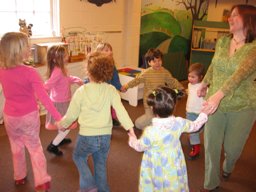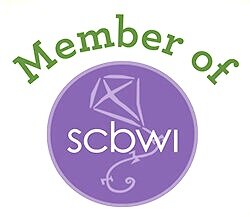The answer is a resounding yes. I like to keep the information in my resource blog on the positive side, and I will share information about the positive guidance schools receive by obtaining licensure later in this post, but I am going to start by getting the bad news out of the way. In the state of Virginia children are 5 times more likely to die in an unlicensed care situation then in a licensed facility.
Here is an investigative report from the Richmond Times-Dispatch if you are interested in the specifics:
http://www.richmond.com/news/local/central-virginia/children-in-unlicensed-day-cares-are-times-more-likely-to/article_e9d6588e-ff51-5b2f-a6a1-4a539c69dcce.html
There are both simple and complex answers for why there is such a disparity. Obviously licensed centers have trained staff, adult to child ratio numbers, and safety standards that must be met. Sadly we all know that the system we have in place for parents who have to work is difficult at best. Care is often too expensive and so parents look for an affordable solution. If you are in that situation Virginia does have a program to help with childcare costs, which can be found here:
https://www.virginia.gov/services/child-care-assistance/
It can be very difficult for someone in a low-income area to run an at home daycare. People often think they cannot afford to get licensed and don’t want the state coming into their homes. All that worry is meaningless when a child is severely injured or dies in your care. Virginia provides a good deal of free training and in my experience many inspectors will work to come up with solutions for you…the last thing they want is for caretakers to not get licensed, and for a tragedy to happen. I know the bureaucracy and forms can be a bit much, but your inspector is there to answer questions and help you meet the requirements.
When I first started teaching I thought, “Yikes, the inspector is here!” Over the years, I have met several inspectors and had frank conversations with them regarding the work they do. I can honestly say that I am happy to see our inspector visit and often use their expertise to help improve situations at our school. It should not be an adversarial relationship. Think of the children first and make it a partnership.
Find information for getting licensed in Virginia here:
https://www.dss.virginia.gov/family/cc/
The majority of childhood deaths in the United States are in the category of “preventable injuries”. We all know injuries, accidents, and deaths will happen, but let’s talk about some of the basic things a licensing inspector does to help prevent injuries. Keep in mind every state has its own specific licensing standards.
Generally, the home or center’s physical space will be inspected, inside and out, any space in which the children will be allowed. Does the building meet basic fire code standards? (Many of the unlicensed homecare deaths in Virginia were due to fires.) Is it a safe place to play with room for children to move in age appropriate ways? Are there proper sanitary standards for food and diaper changes or toileting? Is the paperwork (including criminal background checks) up to date?
For information on each state’s specific standards contact your state’s department of social services.
While inspectors check for health and safety regulations, they generally do not check the educational quality of the program. That means if you care about what your child is being taught or whether your infant is in an appropriately stimulating environment you need to do your homework and talk with the provider and other parents at the home or center. I am aware that for many this step is a luxury, but remember basic safety and competent care are necessities. Someone who loves children, or has children of their own is not necessarily qualified or able to handle several babies or a number of young children. This is partly due to the fact that the demands and stresses of infant and childcare can be very high and there is no break; especially in small home care situations. Having competent advice and resources that an inspector will provide can literally be a lifesaver.
Now that we’ve learned a bit about licensure, my next blog post will cover a few other things to think about when selecting a preschool!


